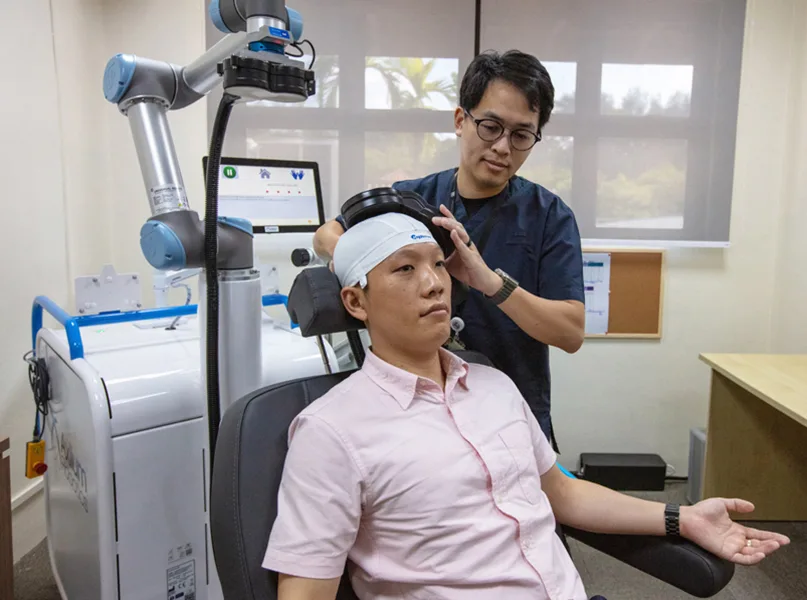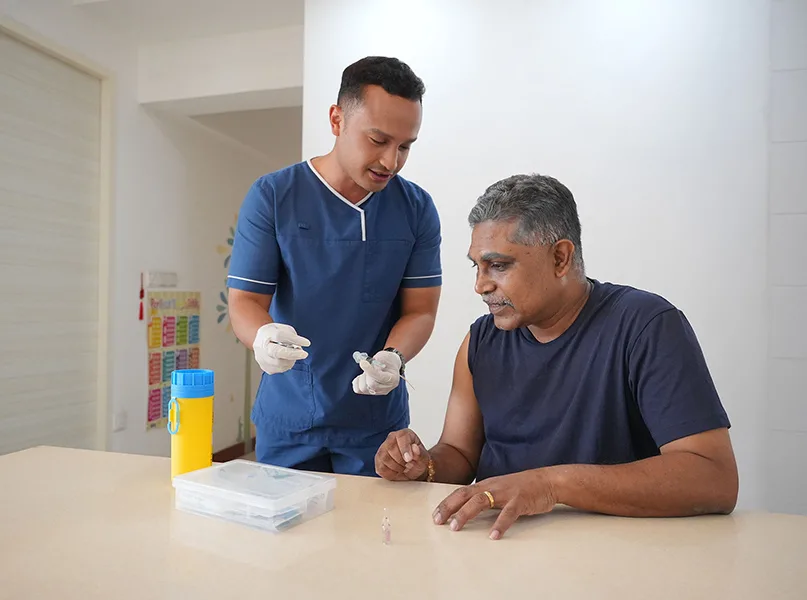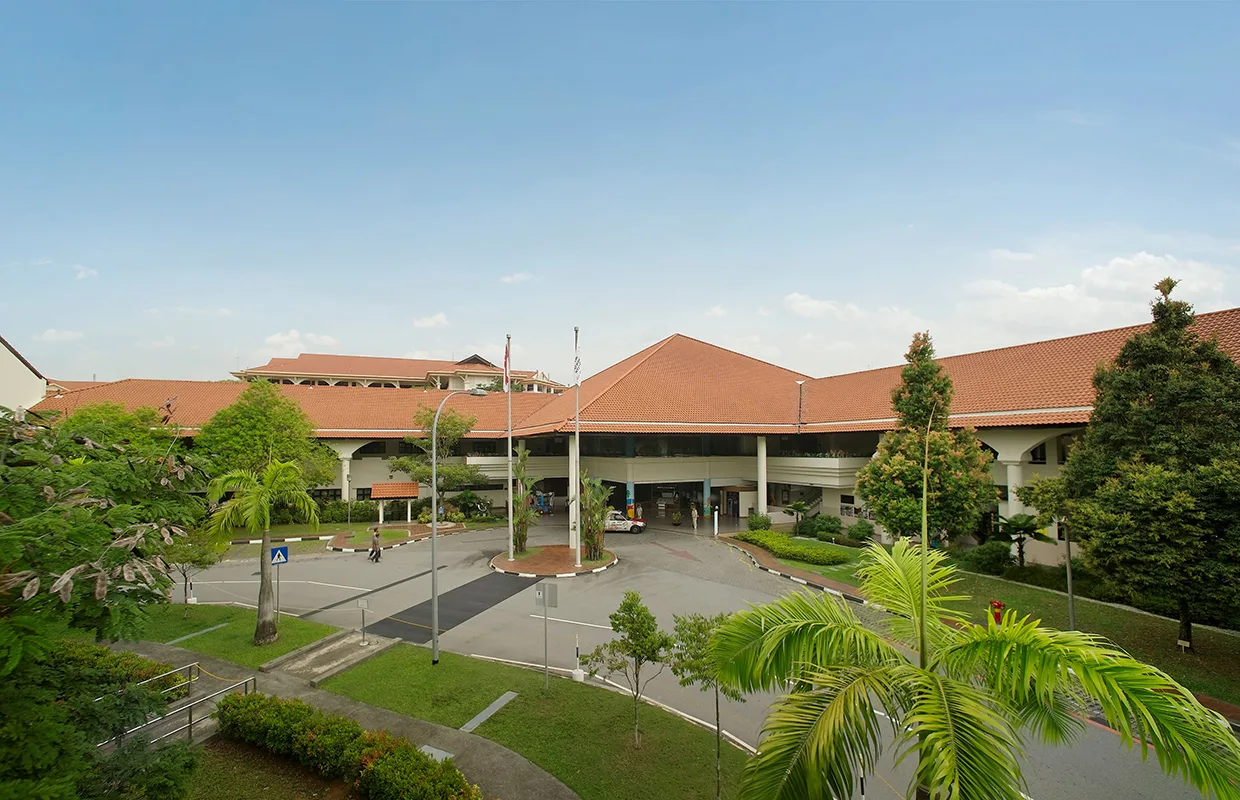With a rich history of mental health care, the Institute of Mental Health is creating an ecosystem of support in Singapore centred around a holistic approach. A/Prof Daniel Fung, CEO, outlines the nation’s changing attitude towards mental illness and the institution’s vision to facilitate accessible care throughout the community.
LOVING HEARTS, BEAUTIFUL MINDS
The identification, care, and treatment of mental illness have historically been influenced by social and structural stigmas that have contributed to a complex relationship with mental health across the globe.
For centuries, the realm of mental illness has been hidden from public view, with many sufferers being kept in asylum facilities or cared for in religious settings such as temples.
In a Singaporean context, the fear of the unknown and notion of hiding mental illness behind closed doors was reflected by the Mental Hospital, which was built in 1928 in a remote part of the country away from any residential or commercial areas.
“Relative to other hospitals in Singapore, it was first built very far north. The reason for this was very simple – it was a mental hospital,” states A/Prof Daniel Fung, CEO of the Institute of Mental Health (IMH).
A physical representation of the social stigma in the 1920s, the Mental Hospital was renamed Woodbridge Hospital in 1951, going through subsequent transformations that reflected the changing attitudes around mental illness.
Woodbridge Hospital later became IMH in 1993 when it moved to the current premises in Hougang which, significantly, is far more integrated into the community, leading to much greater public awareness around the treatment of mental health as a result.
Fast-forward to today and IMH has worked to transform the realm of mental health care in Singapore, both internally within its 2,000-bed hospital and across the community.

THE ERA OF RECOGNITION
Recent developments have enabled IMH to progress into people-centric and accessible support, offering a comprehensive range of psychiatric, rehabilitative, and counselling services.
This wouldn’t be possible without the country’s growing focus on mental health and changing attitudes in the last 20 years.
“Mental health care in Singapore is in an exciting era; there is a lot more attention, support, and recognition being given,” Fung smiles.
Indeed, Singapore has implemented a multitude of significant mental health policies in the last two decades – including the Singapore National Mental Health Blueprint in 2007, which evolved into the Community Mental Health Masterplan in 2012 – each giving rise to the National Mental Health and Well-Being Strategy launched two years ago, which was prefaced around having a stepped care model.
Referred to in Singapore as a tiered system, the strategy acts as a benchmark for global best practices and creates a supportive ecosystem for those with mental health needs.
It spans from Tier 1, which focuses on promoting general well-being and resilience, to Tier 4, which provides tertiary and quaternary care for severe and complex cases.
“With the stepped care model, we can better help individuals receive the appropriate services, allowing for better access and affordability and providing a combined mental health blueprint,” Fung elaborates.
With this in mind, the evolving role of IMH is evermore important as the institution sustains positive mental health support across Singapore.
“Mental health care in Singapore is in an exciting era; there is a lot more attention, support, and recognition being given”
A/Prof Daniel Fung, CEO, Institute of Mental Health
EXPANDING CARE TO THE COMMUNITY
Prior to the launch of the National Mental Health and Well-Being Strategy, IMH had started engaging the community as early as 2007 – the same year the Singapore National Mental Health Blueprint was introduced.
The institution’s community efforts in the subsequent five years included the Early Psychosis Intervention Programme (EPIP), which offered early detection and treatment for individuals with psychosis between the ages of 16 and 40.
Meanwhile, the Response, Early intervention and Assessment in Community mental health (REACH) initiative and Community Mental Health Team (CMHT) were both launched in 2007 to provide early detection and intervention to those at risk of a mental health condition, whilst supporting those recovering from a mental health condition in the community.
Today, IMH continues its community-focused approach by building off the cornerstones of the National Mental Health and Well-Being Strategy and the tiered-care model framework, directing its focus on capability-building to equip community partners to support patients in Tiers 1 to 3.

As a result, IMH can facilitate early interventions and preventative care before significant mental illnesses emerge.
“As we developed a new tiered-care model, we asked how our care would change. In the past, we used to conduct long-term chronic care that addressed a legacy of patients who were admitted to hospital for a long time,” Fung recalls.
“If the stepped care model really works, then we will have less of such patients and more who can be treated in community and don’t require hospitalisation. This means our facility will be able to manage acute care a lot better and earlier, which is the kind of transformation that we are trying to achieve.”
With this in mind, one of the institute’s main priorities is to facilitate greater access to key resources in the community, allowing outreach centres to effectively manage individuals’ needs beyond simple care and management.
“We strive to ensure people are well maintained within their community and the services they need are affordable,” he continues.
At the core of this endeavour is IMH’s long-standing partnerships with primary care and community partners in the local area, allowing the institute to train and equip community service providers so they can step up and support those with mild to moderate health needs and disorders.
These collaborations have seen IMH provide training and resources to general practitioners (GPs) through a range of programmes, including the Graduate Diploma in Mental Health and the Mental Health-GP Partnership Programme, thus greatly increasing mental health capabilities across the community, as well as providing training and capability-building programmes for social service agencies.

BUILDING VITAL CAPABILITIES
IMH’s key focus going forwards is to increase bed capacity in the long-term whilst ensuring those who require urgent services are able to access help in the short-term.
“We want to make sure there are no long wait times across all levels of the hospital, whether it be for an emergency, getting an appointment to see a psychiatrist, or as an outpatient in the community,” Fung urges.
IMH also hopes to expand its research focus to not only cover epidemiological research but also translational, clinical, and implementation research, helping the institute to better understand the state of mental health across the Singaporean population, further advance the identification and treatment of mental health conditions, and shape mental health policies.
“Our expansion must be undergirded by some sort of evaluation or research; developing an academic clinical programme around mental health is important,” Fung closes.
In aid of this objective, the institute is carrying out clinically relevant research that will help it better understand the mechanisms underlying various mental disorders and translating these findings into interventions that relieve the suffering of patients with mental illness, whilst also helping to address the real-world challenges faced by them and their families.
IMH also conducts large-scale, population-based studies to address knowledge gaps and raise awareness on mental health issues amongst Singapore’s general population and policymakers.
Going forwards, IMH will continue to collaborate with researchers, universities, and educational institutions to provide competency-based training for its support providers, be it doctors, nurses, or allied health professionals.
























